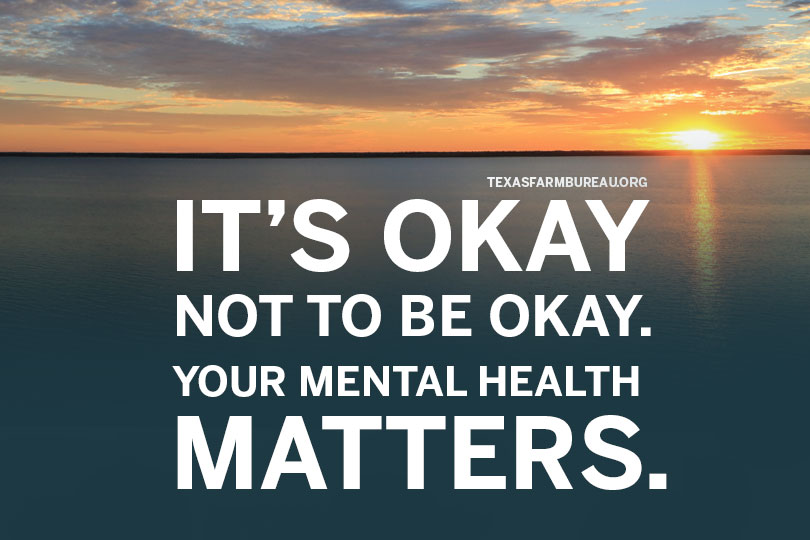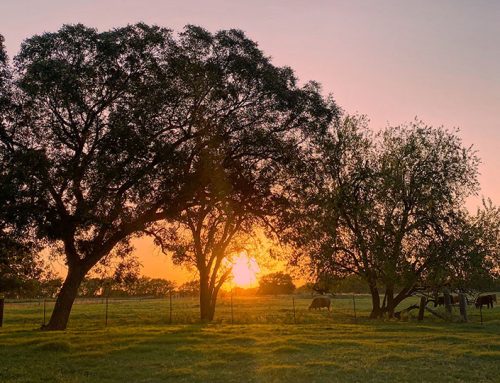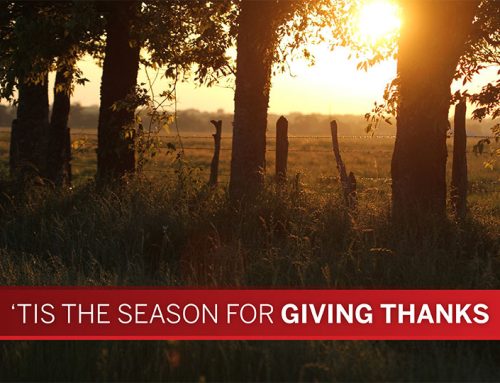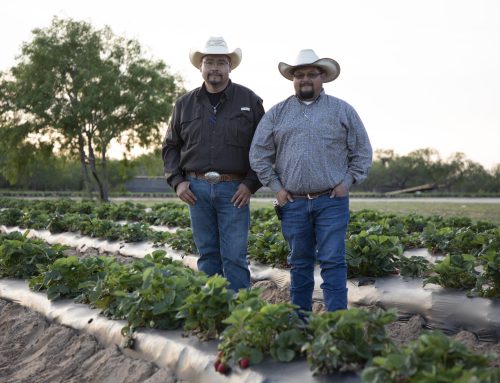By Jennifer Dorsett
Last year was rough. Financial and mental health suffered across the nation as we dealt with the COVID-19 pandemic. Financial woes, personal relationship issues and business problems can leave any one of us feeling stressed or overwhelmed sometimes.
It’s a distressing fact that nearly half of rural adults say they are personally experiencing more mental health challenges than they were a year ago, according to a 2019 Morning Consult report funded by American Farm Bureau Federation (AFBF).
Cost, embarrassment and awareness of mental health are obstacles in seeking mental health care in rural areas, the AFBF poll found.
But rural mental health care can also be hard to access.
More than 60 percent of rural Americans live in an area defined by the U.S. National Institute of Mental Health (NIMH) as a mental health professional shortage area. More than 65 percent of rural Americans get their mental health care from primary healthcare provider, said Dennis Mohatt, Vice President for Behavioral Health at the Western Interstate Commission for Higher Education (WICHE) and director of WICHE’s Center for Rural Mental Health Research.
There is help, however.
And hope.
AFBF has a resource page, Farm State of Mind. Warning signs, steps to help others, support listings, resources and much more are available for those who are facing extreme stress or may know someone who seems to be going through a mental health challenge.
Another good resource is the Rural Health Information (RHI) Hub’s Mental Health and Suicide Prevention page.
The webpage discusses underlying economic conditions and background that may help concerned individuals and first responders understand the unique challenges faced by rural families that contribute to increased stress and poor mental health.
The Farm Crisis Center also has resources by national and local level that may be helpful to those seeking help.
NIMH has five action steps for helping someone in emotional pain that may be helpful as you attempt to start a conversation with someone about mental health.
There is even a free stress management training course, Rural Resilience Training, that will give you the skills to help someone or yourself in stressful times.
And while many of these resources mention farmers and ranchers specifically, the same principles apply to anyone experiencing a mental health challenge. No matter where you live, remember, there’s help.
If you or someone you know are struggling with anxiety, depression or another mental health challenge, it is important to realize you’re not alone. We all feel bad sometimes, and we all could benefit from emotional support when we’re feeling low.
It’s not shameful to seek professional help in dealing with mental health conditions. It’s not shameful to go to the doctor when you’re sick or have a broken bone, so why should seeking help for mental health struggles be any different?
Reach out to a friend.
If they’re the one who seems affected, ask how you can help. If it’s you who has been feeling anxious or depressed, tell them. Your friends and family care about you and want you to feel better.
Be kind to yourself and to one another.
We tend to minimize the bad while highlighting the good in our interactions with others, but we’re all struggling to get through the day and make sense of everyday situations and our lives.
So take care of yourself in 2021 and remember, you are never, ever alone. We’re stronger, together.
The National Suicide Prevention Lifeline is available 24 hours a day at 1-800-273-8255 to anyone in suicidal crisis or emotional distress. If someone is actively threatening to harm themselves or others, call 911 immediately.











Leave A Comment